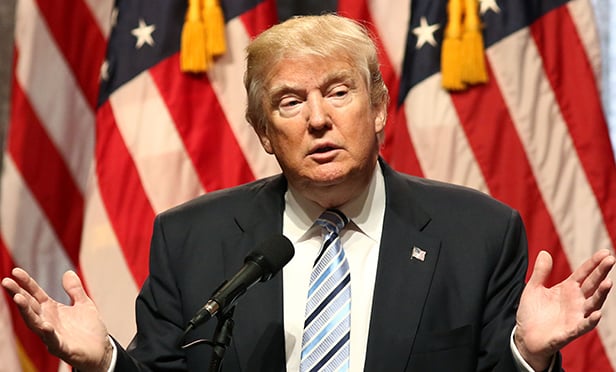European Union leaders deadlocked over the bloc's next seven-year budget, adding to the quarrels between rich and poor countries that have stymied the response to the euro debt crisis.
France defended farm subsidies, Britain clung to a rebate and Denmark demanded its own cash-back guarantee, while eastern and southern countries said reduced financing for public-works projects would condemn them to lag behind the wealthier north.
The conflicts at a Brussels summit offered a 27-nation re-enactment of the fury and acrimony that has marked the fiscal crisis in the 17-nation euro region, and predictions abounded that it would take another summit next year to clinch a deal.
“The positions are still quite far apart,” German Chancellor Angela Merkel told reporters as the meeting resumed today. “And if we need a second stage, then we will take the time for it.”
At stake is a spending plan for the years 2014-2020 that would total about 1 percent of EU-wide gross domestic product. While that sum is paltry compared to the average 50 percent of GDP that each country spends inside its borders, the political resonance is far larger.
Wealthier countries such as Germany, the U.K., Denmark, Sweden and the Netherlands have banded together to cut what they pay in to the budget, pounding away at the original proposal of 1.033 trillion euros ($1.3 trillion) that came out in mid-2011.
By the time the summit started yesterday, the figure on the table was 973 billion euros. Overnight talks shaved the number to the neighborhood of 950 billion euros and triggered a battle to allocate the cuts among the host of subsidy programs.
Merkel, Luxembourg Prime Minister Jean-Claude Juncker and Austrian Chancellor Werner Faymann floated the prospect of another summit in January or February to nail down a deal. In the absence of an accord by late 2013, the EU would roll over its annual budget.
“We are really not there yet,” Dutch Prime Minister Mark Rutte said. “There are huge differences.”
The euro was little changed, trading at $1.2899 at 1:15 p.m. in Brussels, compared to $1.2880 late yesterday. Greek bonds declined, snapping 10 days of gains, while debt of Portugal, Spain and Ireland slipped. The Euro Stoxx 50 index dropped 0.1 percent to 2,531.59.
New Proposal
Leaders met in shifting configurations with each country determined to pay less in or get more out. EU President Herman Van Rompuy was set to release a new proposal this afternoon and gauge reactions in the evening.
Led by Poland, defenders of EU financing pointed out that spending at the European level goes further than money that stays within national borders, since EU subsidies back international projects like pipelines, bridges and airports.
European Parliament President Martin Schulz countered the wealthier countries' insistence on paying less with the contention that it is cheaper for them to promote European projects, since contracts in Latvia or Slovenia go to companies in places like Germany and Sweden.
“Every euro invested by the EU attracts an average of between 2 and 4 euros in additional investment,” Schulz told the leaders. “The EU budget is not a zero-sum game in which one country wins what another loses. Synergies are generated which benefit the net contributors as well.
At a time of austerity at home, that argument failed to sway leaders like U.K. Prime Minister David Cameron. Cameron zeroed in on the salaries of the EU's more than 50,000 civil servants, and said a discussion of a rebate won by Margaret Thatcher in 1984 is off-limits.
“It isn't the time for moving money from one part of the budget to another,” Cameron said. Cuts are “what's happening at home and that's what needs to happen here.”
Using language out of the postwar era, when food shortages led to the setup of programs to promote beef, cereal and dairy production, French President Francois Hollande defended farm aid as a guarantor of “food security.”
Farm subsidies make up over a third of the budget. French farmers picked up 9.5 billion euros in European subsidies in 2011, the biggest single share. Spain, Greece, Italy, Ireland and Poland also number among the defenders of farm support.
“The reduction is still too large,” Hollande said of a new proposal that would restore 8 billion euros of a proposed 25 billion-euro farm-aid cut. He countered Britain's refund claims, saying “they can't ask for a smaller budget and a larger rebate.”
Bloomberg News
Copyright 2018 Bloomberg. All rights reserved. This material may not be published, broadcast, rewritten, or redistributed.
Complete your profile to continue reading and get FREE access to Treasury & Risk, part of your ALM digital membership.
Your access to unlimited Treasury & Risk content isn’t changing.
Once you are an ALM digital member, you’ll receive:
- Thought leadership on regulatory changes, economic trends, corporate success stories, and tactical solutions for treasurers, CFOs, risk managers, controllers, and other finance professionals
- Informative weekly newsletter featuring news, analysis, real-world case studies, and other critical content
- Educational webcasts, white papers, and ebooks from industry thought leaders
- Critical coverage of the employee benefits and financial advisory markets on our other ALM sites, PropertyCasualty360 and ThinkAdvisor
Already have an account? Sign In Now
*May exclude premium content© 2024 ALM Global, LLC, All Rights Reserved. Request academic re-use from www.copyright.com. All other uses, submit a request to [email protected]. For more information visit Asset & Logo Licensing.




